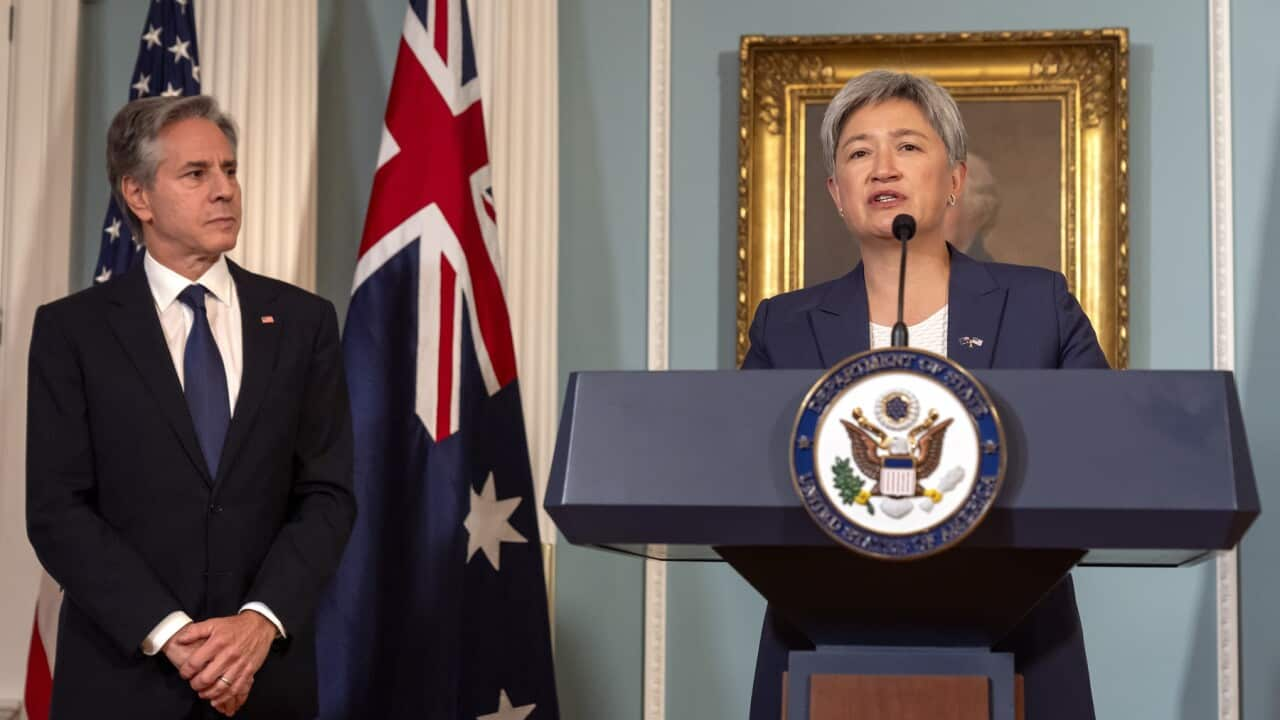TRANSCRIPT
Australians will become eligible for expedited passage through American airports from next year, under the United States' Global Entry program.
From January, 1,000 Australians who are frequent travellers will be able to apply, with plans to expand eligibility later in 2025.
More than 1.3 million Australian tourists visit the US every year where they spend more than A$8.7 billion.
Foreign Minister Penny Wong says the initiative will improve people-to-people links between Australia and the US.
“This is about us, our people to people links and it's about our business relationship and ensuring that Australians who do business here in the US, who are frequent travellers here, are able to access the United States much more easily, reducing the cost of doing business. So, it's a really important contribution to the economic and people to people aspect of our relationship.”
To be eligible, Australians will need to have travelled to the US at least five times in the previous 12 months.
There are also other requirements on both the Australian and US sides, including: a Nationally Coordinated Criminal History Check from the Australian Criminal Intelligence Commission.
Once approved, travellers will be able to use automated kiosks at US airports; and access faster security screening for domestic flights.
Two further agreements have been announced, including a satellite mapping project of the earth's surface to support mining exploration, environmental monitoring and disaster management from 2031.
As part of the agreement, the federal government will commit $207.4 million over four years to Geoscience Australia for ground station upgrades and data processing and analytics developments.
Australia has also become the 20th country to sign onto a Memorandum of Understanding targeting "state information manipulation" and disinformation.
US Secretary of State Antony Blinken says he welcomes Australia's co-operation in countering misinformation and disinformation by foreign adversaries.
“This is basically, a partnership to work together even more effectively on combating misinformation and disinformation. We know that around the world, we're in an environment in which misinformation and disinformation is, unfortunately, a tool of choice for countries that are in adversarial relationships with both of our countries. Australia is now the 20th country to sign an agreement with us.”
The announcements came ahead of the 34th annual Australia-US Ministerial [[AUSMIN]] dialogue in Annapolis, Maryland to be attended by Ms Wong and Defence Minister Richard Marles.
The meeting is expected to cover progress on the AUKUS trilateral security partnership between Australia, the United Kingdom, and the United States.
US Secretary of Defence, Lloyd Austin says security in the Indo-Pacific region is a major focus.
“You know, I just returned, last week from my 11th trip to the Indo-Pacific. We share with Australia a vision for a free, open and secure Indo-Pacific. And together, our unbreakable alliance is helping to make that vision a reality. We're delivering on major force posture initiatives, deepening our defense, industrial cooperation and expanding efforts with our regional allies and partners. This includes our breakthrough AUKUS partnership with our UK allies. So today is tomorrow. We'll keep building on the historic results that we've achieved together, and we'll chart a path to strengthen our alliance over the coming years.”
The killing of several high-profile Hamas and Hezbollah leaders in quick succession has raised concerns of a a broader regional war in the Middle East.
Australian Defence Minister Richard Marles says with instability and growing tensions in the region, international co-operation remains critical.
“We are really mindful of the global responsibility of what the United States has, in what is playing out in the Middle East, in what is playing out in Ukraine. And we are deeply grateful for American leadership in various parts of the world and the globe generally.”
Jared Mondschein is the Director of Research at the United States Studies Centre.
He says the breadth and depth of the bilateral relationship is growing with each AUSMIN dialogue - and he expects there will be considerations also on what impact a potential second Trump administration might mean.
“I think you can't ignore the political realities - and that is just the nature of any partnership or alliance between democracies. The key feature of democracies is that the leader changes and you have elections. With that said, in many ways Australia fared better under Trump administration than, I would argue, than any other country in the world. And if I think if you look at the sort of the structural dynamics at play between US and Australia. I can't really see Australia suffering in a second Trump administration in any significant way. If you look at the way AUKUS is arranged. I think they have made ways to Trump-proof it.”













